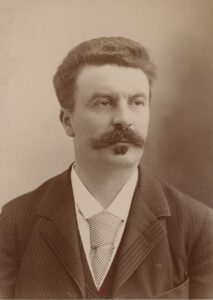Spanish short stories – Learning Spanish through English Akbar and Birbal – La pintura imaginativa Once upon a time, King Akbar was walking around the palace garden with his favourite minister Birbal. Birbal was famous for being very clever and Akbar always kept testing him. Translate
Érase una vez el rey Akbar, quien paseaba por el jardín del palacio con su ministro favorito, Birbal. Birbal era famoso por ser muy inteligente y Akbar siempre lo ponía a prueba.
King Akbar thought, “I know that Birbal does not know how to paint. I will give him a challenge which he will struggle with.”
Translate El rey Akbar pensó: “Sé que Birbal no sabe pintar. Le daré un desafío con el que luchará.”.
King Akbar said to Birbal, “Dear Birbal, I want you to make me a very imaginative painting. I want it within one week.”
Translate El rey Akbar le dijo a Birbal: “Querido Birbal, quiero que me hagas una pintura imaginativa. La quiero para dentro de una semana.”.
Birbal said, “My king, I wish I could but I do not know how to paint. How can I make an imaginative painting for you when I do not know how to paint?”
Translate Birbal dijo: “Mi Rey, desearía poder hacerlo, pero no sé pintar. ¿Cómo puedo hacerle una pintura imaginativa si no sé pintar?”.
King Akbar pretended to be very angry. He said, “Are you dismissing my order. I am ordering you to make me an imaginative painting within 1 week. If you fail, you shall go to Jail!”
Translate El rey Akbar fingió estar muy enojado. Él dijo: “¿Estás desobedeciendo mi orden? Te ordeno que me hagas un cuadro imaginativo en una semana. ¡Si fallas, irás a la cárcel!”.
Birbal was confused but he understood that King Akbar was only testing him. One week later, Birbal brought to Akbar, a large painting wrapped in cloth.
Translate Birbal estaba confundido, pero luego comprendió que el rey Akbar solo lo estaba poniendo a prueba. Una semana después, Birbal llevó a Akbar un cuadro grande envuelto con una tela.
Akbar said, “Birbal. As ordered, you have brought the painting to me in one week. Reveal the painting to me.”
Translate Akbar dijo: “Birbal. Como ordené, me has traído el cuadro en una semana. Revélame la pintura.”.
Birbal removed the cloth and revealed the painting. There was a picture of the ground and the sky. There was nothing else on the painting.
Translate Birbal removió la tela y reveló la pintura. Había una imagen del suelo y del cielo. No había nada más en la pintura.
King Akbar asked, “Birbal. I asked you to paint an imaginative painting. This painting has only some ground and sky. Where is the imagination in this painting?”
Translate El rey Akbar preguntó: “Birbal. Te pedí que pintaras un cuadro imaginativo. Esta pintura tiene solo algo de tierra y cielo. ¿Dónde está la imaginación en esta pintura?”.
Birbal said, “Your Majesty. I used my imagination on this painting. It is a painting of a cow eating grass.”
Translate Birbal dijo: “Su Majestad. Usé mi imaginación en esta pintura. Es una pintura de una vaca comiendo hierba.”.
Akbar said, “But there is no cow or grass in this painting. Where is the cow and the grass?”
Translate Akbar dijo: “Pero no hay una vaca ni hierba en esta pintura. ¿Dónde están la vaca y la hierba?”.
Birbal said, “The cow has eaten all the grass and hence there is no grass left in the painting. Thus you can see only ground in the painting” Akbar asked, “The painting has no cow as well. Where is the cow?”
Translate Birbal dijo: “La vaca se ha comido toda la hierba y, por lo tanto, no queda hierba en la pintura. Así que solo puede verse el suelo en la pintura.”. Akbar preguntó: “La pintura tampoco tiene una vaca. ¿Dónde está la vaca?”.
Birbal said, “My King, the cow has eaten all the grass and is still hungry. What would a cow do on a ground which has no grass? It has left searching for more grass.” Akbar was very happy with the response and gave him 100 gold coins for his wit and intellect.
Translate Birbal dijo: “Mi Rey, la vaca se ha comido toda la hierba y todavía tiene hambre. ¿Qué haría una vaca en un suelo sin pasto? Se ha ido en busca de más hierba.”. Akbar quedó muy contento con la respuesta y le dio 100 monedas de oro por su ingenio e intelecto.
Moral: There is always a solution if one thinks creatively.
Translate Moraleja: Siempre hay una solución si uno piensa creativamente.
Hope you had fun learning the Spanish language through short stories 🙂 If so leave a comment!!!
For more languages: Learn German through Short stories: https://childhood-stories.com/German
Learn Spanish through Short stories: https://childhood-stories.com/Spanish
Learn Italian through Short stories: https://childhood-stories.com/Italian
Learn Dutch through Short stories: https://childhood-stories.com/Dutch
Learn French through Short stories: https://childhood-stories.com/French
Learn Portuguese through Short stories: https://childhood-stories.com/Portuguese
Learn English through Short stories: https://childhood-stories.com/English
About: Studying through Dual Language immersion is among the best techniques for learning a new language. The objective of this website is to teach yourself how to read and speak Spanish confidently using English as a base 🙂 These Spanish short stories are super cool to read for beginners and also for entertaining children. Akbar and Birbal are among the most famous Indian stories for children that can be studied on a daily basis.



